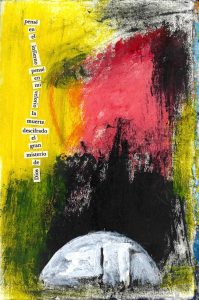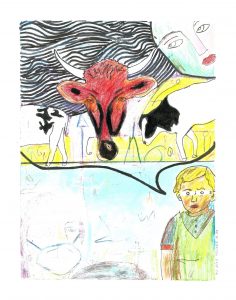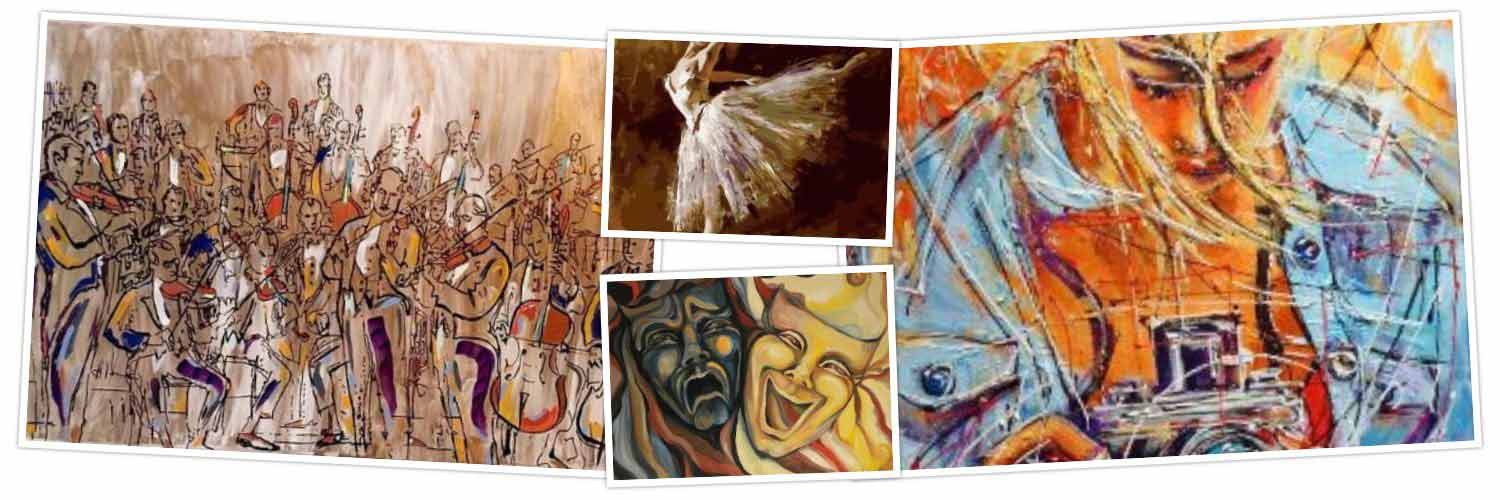Octavio Quintanilla – Poet, Teacher, San Antonio Poet Laureate 2018-20
By JASMINA WELLINGHOFF, Editor–
How and when did you know that you wanted to write poetry and make it your life’s calling?
I knew I had a creative impulse when I was very young, maybe third, fourth grade. I was the kid who, instead of playing games, would sit around and make up stories about the kids who played games. There was something in me that wanted to tell stories. At that time, I didn’t really understand what that was. But later, in high school, I knew that writing was my calling. In my twenties, I tried painting, I tried music, but I kept returning to writing. And writing was the least expensive of the arts – a notebook and a pen. My love of reading also helped my journey of becoming a writer.

How does a poem start?
For me, it often starts with a memory or sometimes with something that someone said, or after reading a book that touched me in a special way. So, there are many ways. I just have to be attentive to these experiences.
You were chosen to be San Antonio’s poet laureate at a relatively young age. You had published a wonderful poetry collection “If I go Missing” but did not yet have a huge body of work at the time. How did you feel when you received this honor and did you experience it as a big responsibility?
When I learned that I had been selected, I was very excited and very surprised to have been selected from among all the great San Antonio poets who had been also nominated. It was exciting to consider all the things that I could do as poet laureate
What were some of your initiatives/programs?
One of the things I focused on was visiting schools: elementary schools, high schools, junior highs, universities. I did a lot of reading in public because I wanted to bring poetry to our citizens here in San Antonio, but also outside of the city and outside of the U.S. During my tenure I went to a poetry festival in Madrid, Spain; I did a reading and presentation in Mexico City. So, that was part of my vision, to take our San Antonio literary culture outside of our city. But I also wanted to remind San Antonians that we have good poets here, that we are invested in poetry, that we can celebrate the spoken and written word as a way to make a stronger and more educated community.

More recently, you have turned to expressing yourself through drawings and paintings you call Frontextos, pieces that often include text as well. Tell us about Frontextos.
I started working on Frontextos January 1, 2018. My challenge was to write a poem or create something every day and stop making excuses for not writing, like I am too busy to write, the usual excuses. I bought some notebooks and I tried to complete some type of poetic text every day. But then, I started doodling on the margins and I liked it. Gradually, the drawings and images became more elaborate. So, basically, I started the project to hold myself responsible for my own creative output. I post them on social media, one every day. And some people respond to the text, some to the drawing, some to both. Overall, the text is in some way evoking the image, but not always. The early ones were done exclusively with black ink on moleskin paper. After a year or so, I started using color. Now I am doing them on archival paper, to make them last.
A few weeks ago, you received a grant from the Luminaria Artist Foundation given for the creation or completion of new and original work. What will you be working on?
I’ll be using the grant to put together a book of Frontextos. It’s like the grant and the pandemic came almost at the same time. So, when San Antonio went into quarantine, I started this new series, called “Los Dias Oscuros” or “Dark Days.” It’s a way to chronicle the dailiness during quarantine in a creative way. That’s the project that will become a book.

During the first days of quarantine, I wasn’t sure how to feel about the situation. Part of me was OK with it, and part of me felt a bit anxious. Sometimes when this happens, I forget about words, semantics and logic, and I allow the images I paint or draw to speak or to reflect symbolically an emotional interior landscape… They are visual poems where the reader/viewer is given the opportunity to participate in “writing” the poem.
Also, I would like to let your readers know that even though I had been working on Frontextos since 2018, I have never tried to sell them. Now, I want to offer them to the public. (See below)

What are you missing the most during this “sheltering in place” time?
Getting a haircut! (laughs) But on a more serious note, I miss going to work and then coming home to rest, knowing I had put in a good day’s-worth of work. Working from home makes it difficult to disconnect from work, to differentiate between a work space and a rest space. In addition, I miss teaching, I miss being in the classroom with my students; I miss the community that students and professors make.
You are also the poetry editor of VOICES DE LA LUNA, a prominent literary magazine here, and you are in tune with what’s going on in San Antonio. How would you describe the poetry scene in our fair city?
Very lively, very healthy! We have so many poetry communities, the spoken-word poets, we have poets who write for the page, we have performance poets, academic poets…San Antonio has quite a few universities and they all teach poetry. On the publishing side, we have VOICES DE LA LUNA, an independent magazine that supports and promotes the literary arts. I joined as poetry editor because their vision appealed to me. For the past two years, we have been focusing on publishing the best writing submitted to us and, I believe, we have a magazine that we can be proud of.

Besides poetry, what are you good at?
I am, obviously, good at painting, I am good at playing guitar, and I am good at watching movies. I also like to re-watch movies after a certain time. It’s like re-reading a book. You discover new things.
When you do readings or make presentations, what’s the most frequently asked question?
The question that I get the most from writing students is “How do you get published?” I tell them how it happened for me, but I also tell them to be patient, to revise their work a lot, and use the resources available to them to workshop their writing. It’s also important to read the journals you want to submit to, to see if there’s a fit between what a journal needs and your work.
Can a happy person be a good poet?
Yeah, if you consider me to be a good poet, then it’s possible, because 97% of the time I am pretty happy. I am only happy because I have this outlet of writing, however. Once I write about something, it’s like I’ve unburdened myself. And then I can focus on the world around me, my family, and on other things. I am happy right now talking with you. A lot of great poets lived ordinary lives.
Are there issues that bug you right now in our public life?
I am concerned right now about the people who are out of work and don’t have help from the government to get the basics like food. And it really bothers me that some people are still gathering in large groups, knowing that we are all threatened by this virus, knowing that we still don’t have a good treatment or a vaccine and that we can’t control the situation. Yesterday (May 15) I went for a drive downtown and saw groups of people behaving like nothing was going on. It bothers me that some people in our community are not listening, not respecting other people’s lives. They are not just putting their lives in danger; they are also putting my life in danger.
Do you have a life motto, a basic principle that you live by?
I don’t know if I can put it in words but I’ll try. My life philosophy so far has been this: Do something you love with your life. So many people spend their lives doing crap they don’t like; it just causes misery. Figure out what you really want to do, whatever it is.
To view and order Frontextos go to: https://www.dropbox.com/sh/s8wb5ggo3517tnx/AAAdfLI9rBEXebHKFhu8SbVba?dl=0 You can also contact Mr. Quintanilla through his website www.octavioquintanilla.com

Great interview, Octavio! I enjoyed reading this piece. Your poetry and frontextos are wonderful. I look forward to
your book about ‘Los Dias Oscuros’.